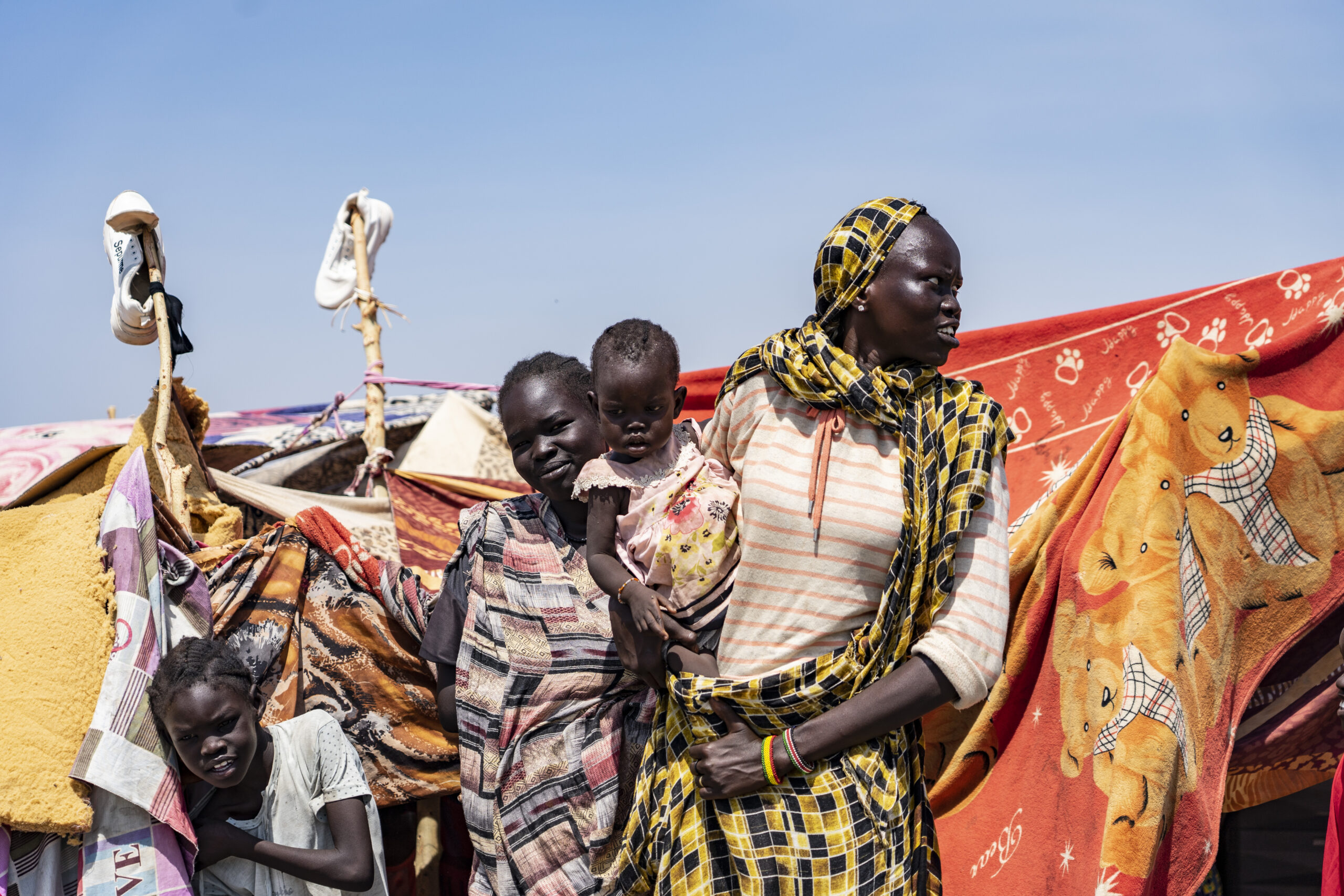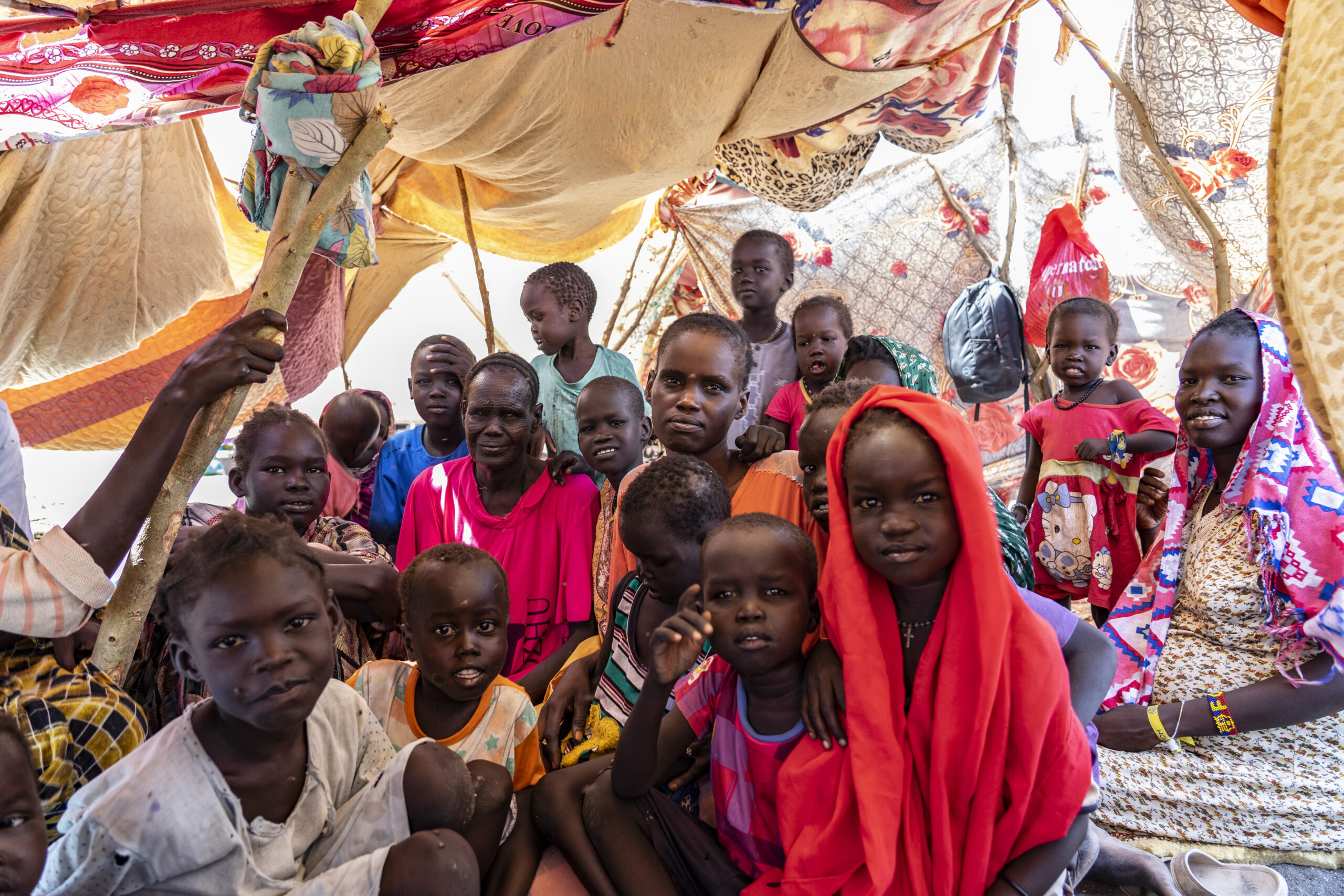
Rebecca (30) and Martha (65) like, so many others, fled Sudan when civil war broke out spreading from the capital.
Both women are South Sudanese and fled south to their home country, leaving the lives they once lived behind.
They came from Bahari and travelled to Renk, a border crossing in South Sudan, travelling mainly by foot and one bus. It took them 7 days to arrive at the camp and they travelled with a total of 31 people (6 men, 8 women and 16 children – the youngest being 9 months old).
Both women explain how they seek refuge in Juba as they have family there. Everything is so uncertain but they plan to travel onwards from Renk.
They left Sudan because of the war and many shootings and bombings in their area left them with little choice.
 To leave their town, they had to cross a bridge that had been occupied and guarded by the military, so they feared to pass through it.
To leave their town, they had to cross a bridge that had been occupied and guarded by the military, so they feared to pass through it.
It was extremely stressful but they and those who travelled with them had to wait in secret. Only when the military moved elsewhere and the fighting around the bridge stopped, were they able to escape their town.
On the way to Renk they saw fighting almost everywhere, they suffered hunger and thirst but knew they had to keep travelling south to avoid the violence.
Both women express how lucky there were to escape their town but in Renk they understand there are new challenges to face. In Renk – due to overcrowding security, especially for women and girls, is a frightening concern. Access to water and food, especially for the babies and children they travelled with, is a daily struggle.
The need for humanitarian aid is literally a life-or-death situation.
Rebecca and Martha wish a better life for their children to live somewhere where they can be in peace, go to school and have a safe life.
JRS are at frontiers like Renk, supporting families piece their lives back together with basic aid of food and water as well as psychosocial support.
For World Refugee Week we will be sharing refugee stories, like Rebecca’s and Martha’s, and our message is one of solidarity for all refugees near and far.
You can help us support refugees experiencing the unimaginable by donating or sharing their stories.


